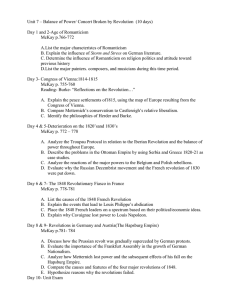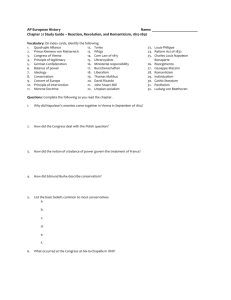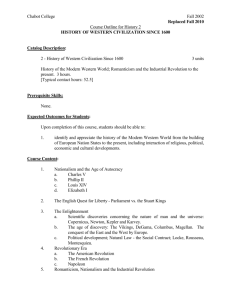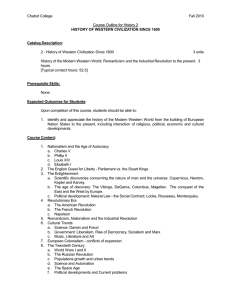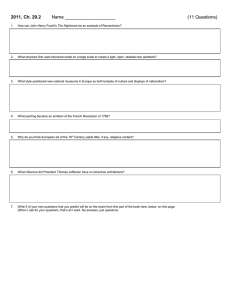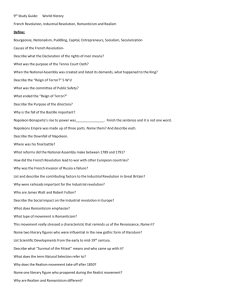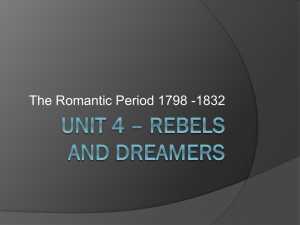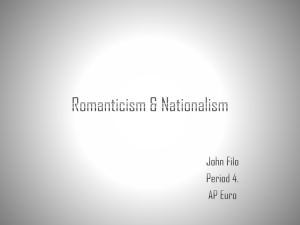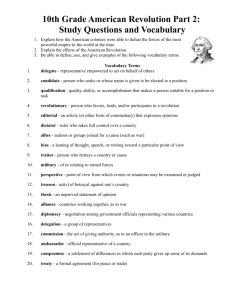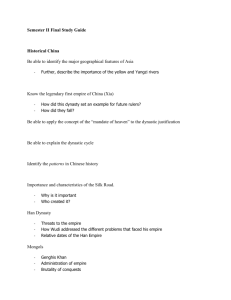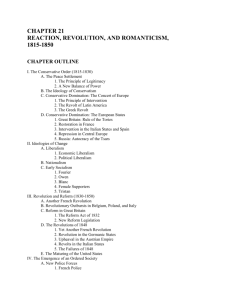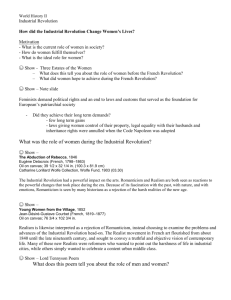AP European History: Ideologies & Upheavals Unit Objectives
advertisement
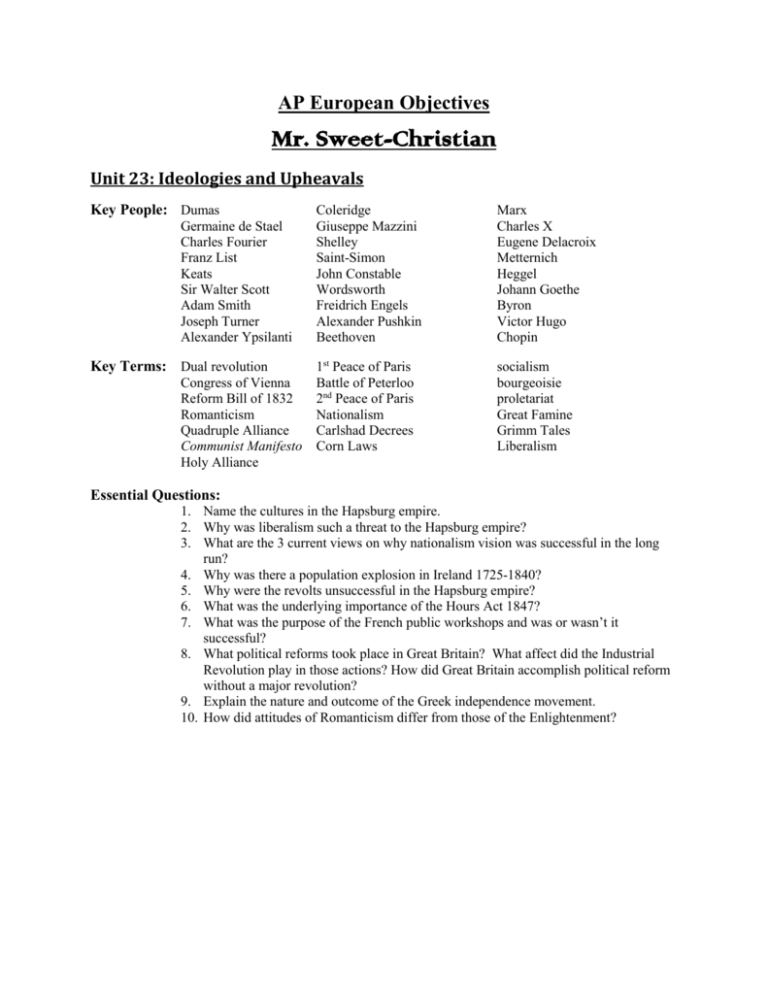
AP European Objectives Mr. Sweet-Christian Unit 23: Ideologies and Upheavals Key People: Dumas Germaine de Stael Charles Fourier Franz List Keats Sir Walter Scott Adam Smith Joseph Turner Alexander Ypsilanti Key Terms: Dual revolution Congress of Vienna Reform Bill of 1832 Romanticism Quadruple Alliance Communist Manifesto Holy Alliance Coleridge Giuseppe Mazzini Shelley Saint-Simon John Constable Wordsworth Freidrich Engels Alexander Pushkin Beethoven Marx Charles X Eugene Delacroix Metternich Heggel Johann Goethe Byron Victor Hugo Chopin 1st Peace of Paris Battle of Peterloo 2nd Peace of Paris Nationalism Carlshad Decrees Corn Laws socialism bourgeoisie proletariat Great Famine Grimm Tales Liberalism Essential Questions: 1. Name the cultures in the Hapsburg empire. 2. Why was liberalism such a threat to the Hapsburg empire? 3. What are the 3 current views on why nationalism vision was successful in the long run? 4. Why was there a population explosion in Ireland 1725-1840? 5. Why were the revolts unsuccessful in the Hapsburg empire? 6. What was the underlying importance of the Hours Act 1847? 7. What was the purpose of the French public workshops and was or wasn’t it successful? 8. What political reforms took place in Great Britain? What affect did the Industrial Revolution play in those actions? How did Great Britain accomplish political reform without a major revolution? 9. Explain the nature and outcome of the Greek independence movement. 10. How did attitudes of Romanticism differ from those of the Enlightenment? 1. 2. 3. 4. Where did romanticism primarily crystallize 5. 6. 7. 8. 9.
